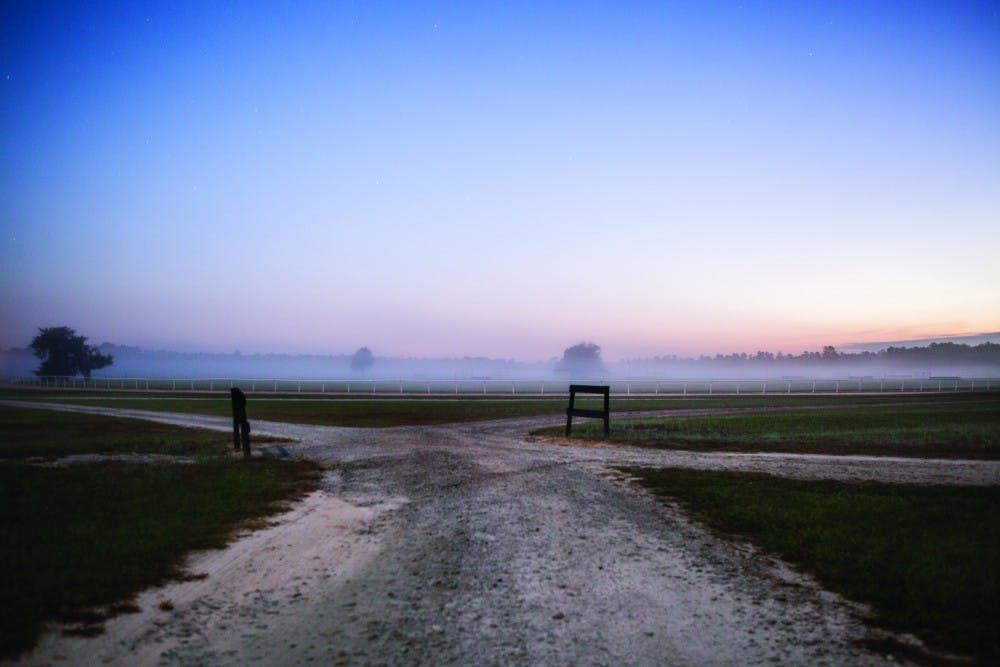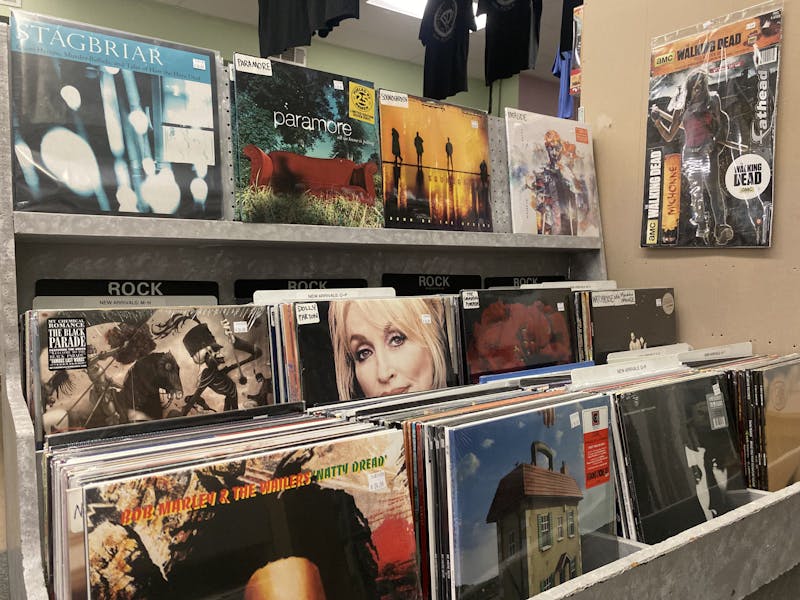In the digital age, it's easy to erase or obscure place of origin.
“A few generations ago,” Professor Bob Brinkmeyer, head of the Southern Studies department at USC says, “people ended up where they grew up. But now, particularly with the internet, you can remake yourself. It’s much more fluid.”
With the click of a mouse, we can change our locations on Twitter or Facebook, tagging ourselves only in the parts of the world that make us seem most interesting and cultured. Using a profile picture from a study abroad or spring break trip can communicate a different version of us to friends and followers. But while location is malleable, origin is not. Spending a semester in France or obscuring an accent doesn’t change the past, but embracing a new kind of Southern identity can change the present.
When a young person admits to being Southern, they are voluntarily associating themselves with an identity that is intrinsically linked to violence and hatred. Southern hospitality coexists with a history of Southern violence, and that dissonance is hard to come to terms with. But while refusing to acknowledge Southern identity may make young Southerners feel better about themselves, it isn’t enacting any useful social change.
Southern pride feels wrong. There are the benign aspects of Southernness, like cheese grits and chicken biscuits and a love for college football, but the most enduring images of the South are of the plantation and the Confederacy.
When I was eight years old I moved with my family from southern California to Dallas, Texas because of my dad’s job. I had no choice in the matter. When I asked what Texas was like, my dad gave me a miniature plastic figurine of a horse and a Dixie Chicks CD. I was in third grade, and that satisfied my curiosity.
Three years later, we moved to Raleigh, North Carolina. I didn’t know much about North Carolina at that point, but I knew that it was The South Proper, as opposed to Texas, an ambiguous appendage of the Southwest.
My relatives in California judged my new home. Their judgment existed on a continuum, ranging from quiet awe at my ability to understand the Southern drawl, to open distaste as we explained that, yes, many of our friends down South owned guns and hunted.
My mother fed into their fears. She liked to imagine herself as an outsider, braving the South, taking on the small town. She ignored the fact that Raleigh is a city with a metropolitan population of over one million, and the home to three major universities. To her, Raleigh was inseparable from the South that she had seen presented in popular culture her whole life, from “Dukes of Hazzard” to “Gone with the Wind.” When she speaks with our relatives, she impresses them with her stories of the “hicks” that surround her. She propagates every stereotype that they have about the South.
Southernness, as it’s propagated, is intrinsically tied to ignorance, racism and a horrifying history in a way that no other regional identity in the United States is.
While the West has been the host of its own horrors (from Japanese internment camps to the systematic slaughter of native peoples), representations of the West in pop culture don’t confront the dirtiest parts of its history. Instead, there are images of John Wayne, gun slung across his hip, traversing dusty, wide-open expanses. There’s the beauty of Yosemite, the Gold Rush, and the pursuit of the American Dream. If any negatives are portrayed at all, it’s that Hollywood is fake – too shallow, with too much glamour and not enough substance.
It’s easy to use the South as a scapegoat, and it’s easier, as a young person, to discard one’s southern identity in an attempt to escape the South’s negative history. Talking to someone who isn’t from the South, it’s much easier to shed an accent that suggests ignorance than to embrace it.
Going to school in South Carolina, there is a dichotomy. There are those who came to USC because they wanted to perform as a part of the Southernness that they knew they would find here, from bowties and barbecue to tailgating and sweet tea. In the other camp, there are those who came to USC because it was the best option academically, or because they had no other option, but who didn’t choose South Carolina for its culture.
Ask someone who is ashamed of being from the South, “Where are you from?” and they will qualify their answer with some sort of statement about how they were born in South Carolina but their parents aren’t southern, or how they’re from South Carolina but plan on leaving once they’ve finished school. Even people who aren’t ashamed of their Southernness may do this because they are afraid they will be judged for where they’re from, or simplified into a stereotype.
These negative associations with southern identity can be complicated even further for individuals who are part of a minority groups. People of color, women, and LGBT youth can feel an even more acute dissonance with their southern identity since the South is portrayed in popular culture as the least accepting part of the country.
Brinkmeyer remembers the difficulty he had in recruiting faculty members the southern studies program at the University of Mississippi.
“I remember one woman we brought in from Rhode Island was just convinced that if the car broke down it was going to be like “Deliverance,” Brinkmeyer says. “That’s what the South was. And that’s what the South is. The stereotypes are still there, and a lot of them are from film.”
It’s unfair to associate these negative stereotypes exclusively with the South. There are ignorant, racist people all over the country, not just in the South — the Republican nominee for president’s widespread popularity is a testament to that. But because the South has such a strong tie to these histories, it’s hard to distance the people that live there from it.
If only one type of person identifies as southern and embraces their southern identity – the stereotypical, NRA-card holding conservative – then stereotypes of the South will never change.




